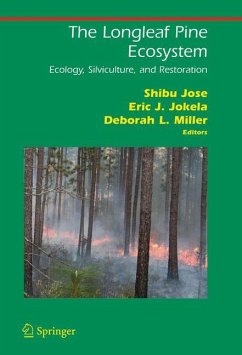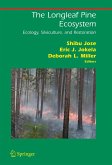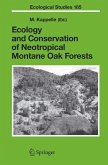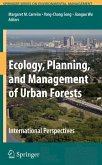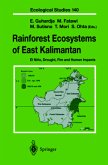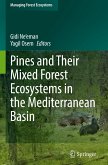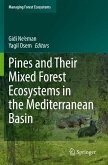The longleaf pine ecosystem, once one of the most extensive ecosystems in North America, is now among the most threatened. Over the past few centuries, land clearing, logging, fire suppression, and the encroachment of more aggressive plants have led to an overwhelming decrease in the ecosystem's size, to approximately 2.2% of its original coverage. Despite this devastation, the range of the longleaf still extends from Virginia to Texas. Through the combined efforts of organizations such as the USDA Forest Service, the Longleaf Alliance, and the Nature Conservancy, extensive programs to conserve, restore, and manage the ecosystem are currently underway.
The longleaf pine ecosystem is valued not only for its aesthetic appeal, but also for its outstanding biodiversity, habitat value, and for the quality of the longleaf pine lumber. It has a natural resistance to fire and insects, and supports more than thirty threatened or endangered plant and animal species, including the red-cockaded woodpecker and the gopher tortoise.
The Longleaf Pine Ecosystem unites a wealth of current information on the ecology, silviculture, and restoration of this ecosystem. The book also includes a discussion of the significant historical, social, and political aspects of ecosystem management, making it a valuable resource for students, land managers, ecologists, private landowners, government agencies, consultants, and the forest products industry.
About the Editors:
Dr. Shibu Jose is Associate Professor of Forest Ecology and Dr. Eric J. Jokela is Professor of Silviculture at the School of Forest Resources and Conservation at the University of Florida in Gainesville. Dr. Deborah L. Miller is Associate Professor of Wildlife Ecology in the Department of Wildlife Ecology and Conservation at the University of Florida in Milton.
The longleaf pine ecosystem is valued not only for its aesthetic appeal, but also for its outstanding biodiversity, habitat value, and for the quality of the longleaf pine lumber. It has a natural resistance to fire and insects, and supports more than thirty threatened or endangered plant and animal species, including the red-cockaded woodpecker and the gopher tortoise.
The Longleaf Pine Ecosystem unites a wealth of current information on the ecology, silviculture, and restoration of this ecosystem. The book also includes a discussion of the significant historical, social, and political aspects of ecosystem management, making it a valuable resource for students, land managers, ecologists, private landowners, government agencies, consultants, and the forest products industry.
About the Editors:
Dr. Shibu Jose is Associate Professor of Forest Ecology and Dr. Eric J. Jokela is Professor of Silviculture at the School of Forest Resources and Conservation at the University of Florida in Gainesville. Dr. Deborah L. Miller is Associate Professor of Wildlife Ecology in the Department of Wildlife Ecology and Conservation at the University of Florida in Milton.

